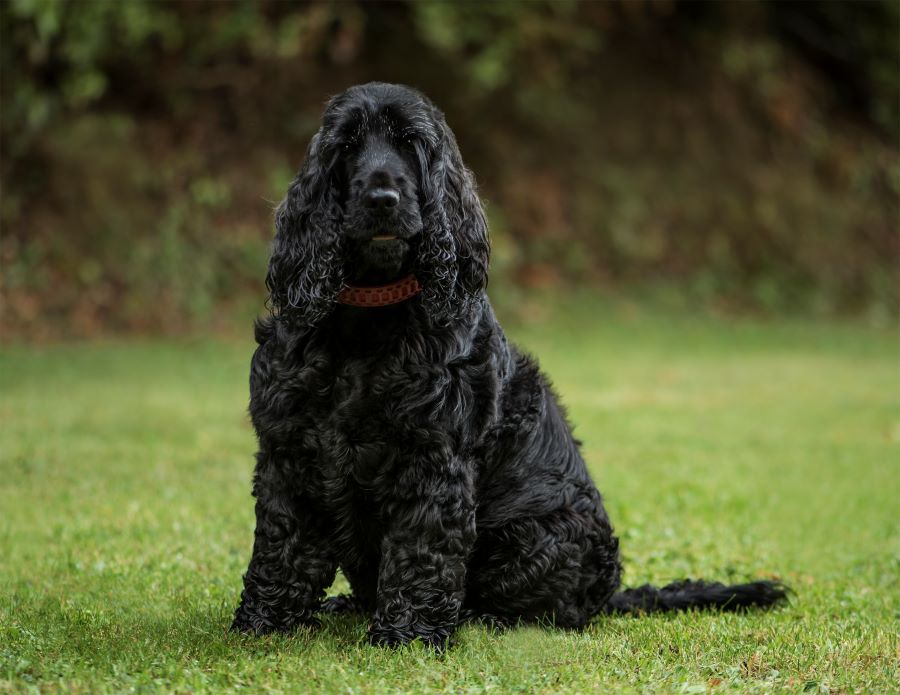Get Pet Insurance for your Cat & Dog

Zero
Documentation
Quick
Claim Process
Affordable
Premium
Terms and conditions apply*
- {{species}}
- {{indoorOutdoor}}
- {{suminsured}}
English Cocker Spaniel Dog Characteristics & Information

English Cocker Spaniels, with their charming disposition and delightful looks, captivate dog lovers worldwide. English Cocker Spaniels are relatively easy to train and care for, making them a good choice for first-time dog owners.
This comprehensive guide delves into their characteristics, care requirements, training needs and health concerns.
What is the Origin of English Cocker Spaniel Dogs?
The English Cocker Spaniel has roots in the United Kingdom and was originally bred for hunting. Their name comes from their use in hunting woodcock, a type of game bird. Today, English Cocker Spaniels are still prized for their hunting abilities, but they have also become popular companion dogs.
Cocker Spaniels are not particularly difficult to own, but they do require some basic care and training.
What are the Characteristics of English Cocker Spaniel Dogs?

It is important for owners to be aware of the characteristics of English Cocker Spaniel dogs in order to fully understand their needs and potential as pets:
- Lifespan: English Cocker Spaniels have an average lifespan of 12 to 14 years. With proper care and nutrition, they can live healthy lives well into their senior years.
- Height: Male English Cocker Spaniels stand between 16 and 17 inches at the shoulder, while females stand between 15 and 16 inches.
- Colour: English Cocker Spaniels come in various colours and patterns. Some of the most common colours include black, brown, liver, tan, and golden.
- Weight: Male English Cocker Spaniels weigh between 12 and 15 kg, while females weigh between 11 and 14 kg.
- Behaviour and Personality: They are known for their affectionate, playful, and gentle personalities. They are generally good with children and other pets.
- Living Conditions: English Cocker Spaniels can be happy living indoors but require plenty of playtime. They should have access to a fenced yard or safe outdoor space.
- Barking: English Cocker Spaniels are known for excessive barking, and they may bark to alert you of strangers or even bark when the phone is ringing.
- Coat: English Cocker Spaniels have a medium-length, soft, silky coat with feathering on ears, legs, and torso.
- Temperament: English Cocker Spaniels are intelligent, eager to please, and relatively easy to train. They are also very friendly and love to be around people.
- Breed Group: English Cocker Spaniels are classified as Sporting Dogs due to their hunting instincts but are also well-suited as family pets.
How to Train English Cocker Spaniel Dogs?

English Cocker Spaniels are relatively easy to train. Here are some specific training tips for English Cocker Spaniel dogs:
- Quiet Command: Do not reward their barking with attention or treats. Teach them a "quiet" command to stop excessive barking.
- Crate Training: Crate training can be hard but beneficial for Cocker Spaniels to provide them with a safe space and aid in house training.
- Obedience Lessons: Enrol your English Cocker Spaniel in obedience classes to teach them basic commands and improve their socialisation skills.
- Leash Training: Start leash training early to prevent pulling and ensure they walk calmly by your side.
- Tracking and Hunting: They have a natural instinct for tracking and hunting. Consider engaging them in activities that stimulate their hunting instincts.
- Sandbox: Set up a sandbox for them to dig and bury toys, satisfying their natural desire to dig without damaging your garden.
- House Training: Cocker Spaniels can be slightly challenging to house train. Establish a regular potty schedule and take your dog out frequently.
What are the Health Problems with English Cocker Spaniel Dogs?
English Cocker Spaniels are prone to specific health problems, some of which can be serious. Here are five health problems:
- Progressive Retinal Atrophy: This genetic condition in English Cocker Spaniels causes progressive vision loss and can lead to blindness.
- Hip Dysplasia: A common orthopaedic condition in this breed, where the hip joints don't develop properly, leading to pain and mobility issues.
- Familial Nephropathy: A hereditary kidney disease that can cause kidney failure or blood proteins leaking through urine in some English Cocker Spaniels.
- Otitis: English Cocker Spaniels are prone to ear infections of bacteria or yeast due to their long, floppy ears. Regular ear cleaning is necessary to prevent ear issues.
- Skin Infections: Their long, dense fur can make them susceptible to skin infections, so regular grooming and bathing are essential.
How to Take Care of English Cocker Spaniel Dogs?
English Cocker Spaniels are a high-maintenance breed, and they need to get the following care and attention to be healthy:
- Diet and Nutrition: Give your English Cocker Spaniel high-quality food such as turkey, lamb, eggs, fish, carrots, watermelon and fresh vegetables.
- Feeding: Divide their daily food into two meals to prevent bloating and other digestive issues.
- Grooming: English Cocker Spaniels require regular brushing to prevent matting and tangles. They also need occasional professional grooming for trimming their feet.
- Exercise: English Cocker Spaniels are energetic dogs that require lots of exercise to stay healthy. Daily walks and playtime are vital for their well-being.
- Bathing: Bathe your English Cocker Spaniel once a week, or when they get dirty, to keep them clean and healthy.
- Ear Care: Check and clean their ears weekly to prevent ear infections, and gently trim any excess hair around the ear canal.
- Dental Care: Brush your English Cocker Spaniel's teeth twice a week to maintain good oral hygiene and prevent dental problems.
- Keep Them Hydrated: Always provide fresh water to keep your English Cocker Spaniel hydrated throughout the day.
English Cocker Spaniel is a wonderful breed known for its affectionate nature, playful demeanour, and adaptability to various lifestyles. Their loyalty and intelligence make them fantastic companions for families and individuals alike.
Understanding their characteristics, care needs, and potential health concerns is crucial for providing them with a happy and fulfilling life.












